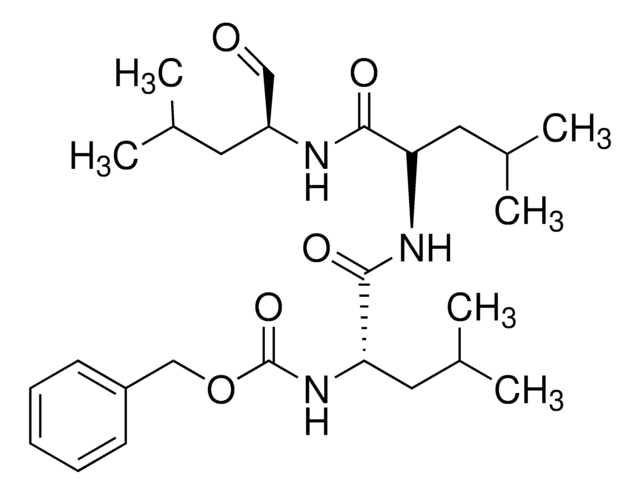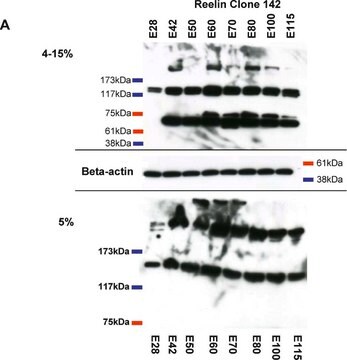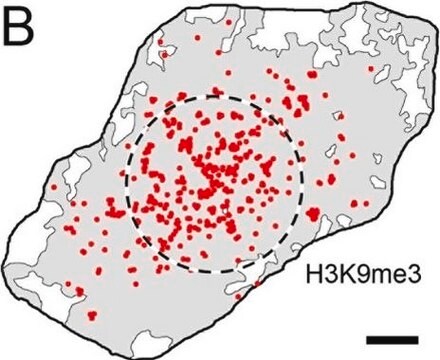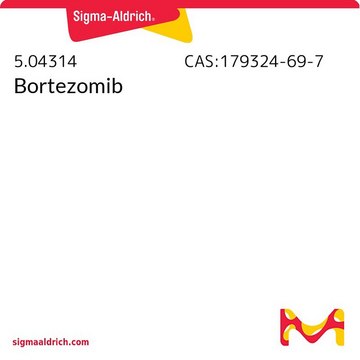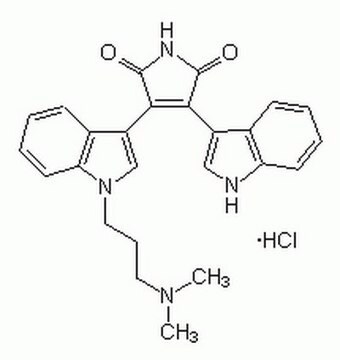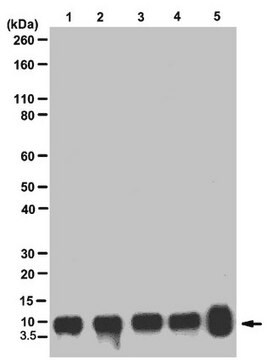05-1355
Anti-acetyl Histone H4 (Lys5/8/12/16) Antibody, clone 3HH4-4C10
ascites fluid, clone 3HH4-4C10, from mouse
Synonym(e):
H4KAc, Histone H4 (acetyl), H4 histone family, member N, H4 histone, family 2, histone 2, H4, histone 2, H4a, histone IV, family 2, histone cluster 2, H4a
About This Item
Empfohlene Produkte
Biologische Quelle
mouse
Qualitätsniveau
Antikörperform
ascites fluid
Antikörper-Produkttyp
primary antibodies
Klon
3HH4-4C10, monoclonal
Speziesreaktivität
human
Speziesreaktivität (Voraussage durch Homologie)
mouse (based on 100% sequence homology), rat (based on 100% sequence homology)
Methode(n)
immunocytochemistry: suitable
western blot: suitable
Isotyp
IgG1κ
NCBI-Hinterlegungsnummer
UniProt-Hinterlegungsnummer
Versandbedingung
dry ice
Posttranslationale Modifikation Target
acetylation (Lys5/Lys8/Lys12/Lys16)
Angaben zum Gen
human ... H4C1(8359)
mouse ... H4C1(326619)
Allgemeine Beschreibung
Spezifität
Immunogen
Anwendung
Epigenetik & nukleäre Funktionen
Histone
1:500 dilution from a representative lot detected Histone H4 in A431 and HeLa cells.
Qualität
Western Blot Analysis: 1:2,000 dilution of this antibody detected Histone H4 on 10 µg of HeLa acid extract lysate.
Zielbeschreibung
Physikalische Form
Lagerung und Haltbarkeit
Handling Recommendations: Upon receipt and prior to removing the cap, centrifuge the vial and gently mix the solution. Aliquot into microcentrifuge tubes and store at -20°C. Avoid repeated freeze/thaw cycles, which may damage IgG and affect product performance.
Hinweis zur Analyse
HeLa acid extract lysate
Haftungsausschluss
Sie haben nicht das passende Produkt gefunden?
Probieren Sie unser Produkt-Auswahlhilfe. aus.
Lagerklassenschlüssel
12 - Non Combustible Liquids
WGK
WGK 1
Flammpunkt (°F)
Not applicable
Flammpunkt (°C)
Not applicable
Analysenzertifikate (COA)
Suchen Sie nach Analysenzertifikate (COA), indem Sie die Lot-/Chargennummer des Produkts eingeben. Lot- und Chargennummern sind auf dem Produktetikett hinter den Wörtern ‘Lot’ oder ‘Batch’ (Lot oder Charge) zu finden.
Besitzen Sie dieses Produkt bereits?
In der Dokumentenbibliothek finden Sie die Dokumentation zu den Produkten, die Sie kürzlich erworben haben.
Unser Team von Wissenschaftlern verfügt über Erfahrung in allen Forschungsbereichen einschließlich Life Science, Materialwissenschaften, chemischer Synthese, Chromatographie, Analytik und vielen mehr..
Setzen Sie sich mit dem technischen Dienst in Verbindung.
